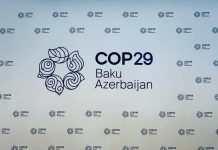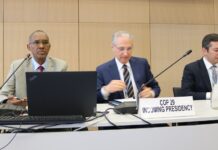
The United Nations Development Programme (UNDP) and Sustainable Energy for All (SEforAll) will partner to unlock public and private investment towards affordable and sustainable energy access for all in Africa, especially in the Sahel.
The UN assistant-secretary general/UNDP assistant administration/regional bureau for Africa director Ahunna Eziakonwa and Damilola Ogunbiyi, CEO and special representative of the UN secretary general for Sustainable Energy for All and co-chair of UN Energy, sign a memorandum of understanding at the UN headquarters in New York.
“Our vision for this partnership is to continue to promote and support bolder energy transition initiatives for the region and to demonstrate the viability of longer-term programmes and investment readiness in the Sahel that will ultimately benefit millions of people in the region who currently do not have access to electricity and clean cooking solutions,” said Ogunbiyi.
More than 53% of people in sub-Saharan Africa, around 570 million, do not have access to electricity, says the World Bank. In the Sahel – the geographic region between the Sahara to the north and the Sudan Savannah to the south – more than 51% of the people (around 175 million) do not yet have access to electricity. Of that, around 80% (around 271 million) do not have access to clean cooking methods.
Limited and unpredictable power supplies combined with high electricity costs constrain the development of businesses and economic activities in the area.
Fossil fuels and traditional biomass such as charcoal, wood and coal remain the main energy sources, creating sever consequences on environmental and human health.
Capitalising on the potential of the Sahel region will start with energy access for all
SEforAll and the UNDP teams will support the policy and regulatory frameworks and strengthen institutional capacity through their alliance. They aim to unlock public and private sector investment for off-grid rural electrification, among other initiatives.
“Affordable and sustainable access to energy is key to accelerating development. A great opportunity awaits to be tapped – to transform the Sahel, regenerating this land of immense opportunity and promise.
“Investing in energy in the Sahel will deliver dividends for children trying to earn an education, youth willing to access employment opportunities, women yearning to acquire new skills and empower local authorities or business,” said Eziakonwa.
The Sahel may have immense renewable energy potential but is challenged by the high cost of finance required to deploy clean energy solutions at scale in the region.
Investing in clean energy would increase human development, ensure structural economic transformation and socio-economic progress. It could also address conflict triggers in the region.




















